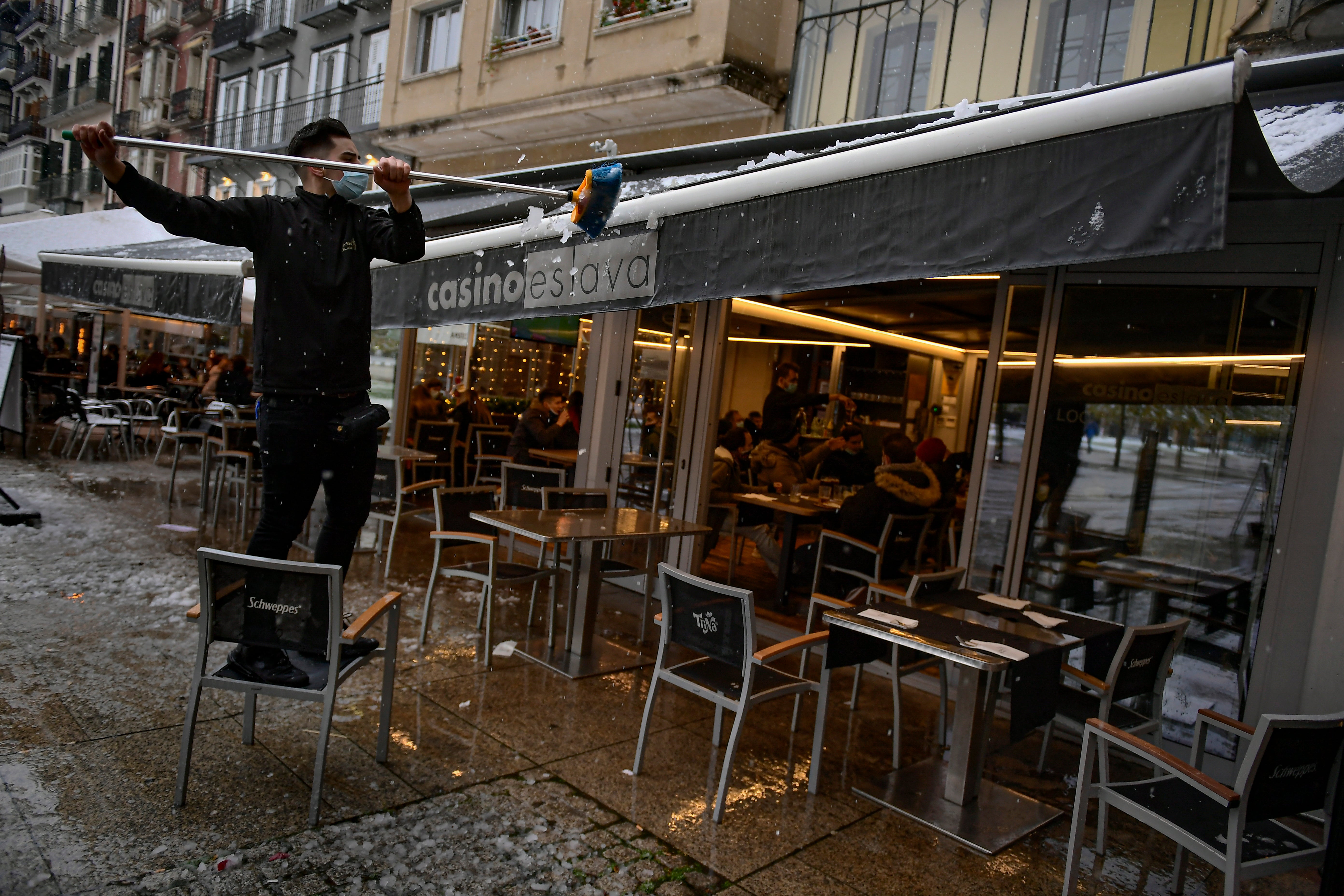Virus-hit European economy likely to get stimulus shot
The European Central Bank is set to deliver more monetary stimulus will be decided at the bank's meeting Thursday

Your support helps us to tell the story
From reproductive rights to climate change to Big Tech, The Independent is on the ground when the story is developing. Whether it's investigating the financials of Elon Musk's pro-Trump PAC or producing our latest documentary, 'The A Word', which shines a light on the American women fighting for reproductive rights, we know how important it is to parse out the facts from the messaging.
At such a critical moment in US history, we need reporters on the ground. Your donation allows us to keep sending journalists to speak to both sides of the story.
The Independent is trusted by Americans across the entire political spectrum. And unlike many other quality news outlets, we choose not to lock Americans out of our reporting and analysis with paywalls. We believe quality journalism should be available to everyone, paid for by those who can afford it.
Your support makes all the difference.The European Central Bank is expected to unleash a half-trillion euros ($600 billion) or more in stimulus on Thursday to support businesses, workers and governments through the winter wave of the coronavirus.
Bank President Christine Lagarde has given unusually clear signals that action is coming, saying there was “little doubt” the bank's 25-member governing council would use the meeting to “recalibrate” its support for the economy of the 19 European Union countries that use the euro.
Analysts think the central bank will boost its current 1.35 trillion-euro ($1.64 trillion) pandemic emergency bond purchase program by 500 billion euros or more, and extend it from its current earliest end date of mid-2021 to the end of 2021 or mid-2022.
The monetary authority for the eurozone could also add more ultra-cheap, long-term loans to banks, the chief source of ready money for companies in the eurozone, to ensure businesses don't go bankrupt or cut back because credit is too expensive or unavailable. Some of the long-term loans currently come with negative interest rates that in effect pay banks to borrow - on condition they keep lending.
Lagarde has said policymakers including the central bank, national governments and EU institutions need to keep up their support for the economy to bridge the gap until vaccines can help normal economic activity resume. She has advised caution about celebrating a recovery too early when the vaccine rollout is still in its very early stages; the U.K. has started vaccinating vulnerable older people but the EU and the U.S., a key trading partner, are still working on final approval before starting campaigns.
The economy needs support to keep business owners from giving up, leading to knock-on effects and long-term loss of output and jobs, Lagarde argued in a Nov. 11 speech. “Firms that have survived up to now by increasing borrowing could decide that remaining open no longer makes business sense,” she said.
ECB stimulus has supported governments that are spending heavily on helping businesses and workers and that, as a consequence, have seen their deficits and borrowing needs shoot higher. National governments have rolled out assistance that includes: furlough programs that pay worker salaries to avoid permanent layoffs; suspension of some taxes, such as value-added tax in Germany, and cheap loans and credit guarantees.
At the European Union level, governments have proposed joining in common borrowing to fund a 750 billion euro recovery fund to back digital innovation and efforts to combat climate change. That money is slated to start flowing next year, although final approval of the program has been held up by a dispute with populist governments in Hungary and Poland over conditions attached to the money that would require recipients to comply with EU democratic standards.
The ECB bond purchases are driving down long-term interest rates and helping to ensure that all that borrowing remains affordable. The stimulus has also helped insure the eurozone against a repeat of its 2010-2012 debt crisis, when spiralling borrowing costs threatened to break up the currency union.
The U.S. Federal Reserve is also carrying out bond purchases but more attention has turned in recent days to government spending as Republicans and Democrats haggle over another round of stimulus relief in the Congress. Fed officials hold their next policy meeting Dec. 15-16. Several Fed officials have stressed the need for Congress to act and indicated that if lawmakers don't provide more help they may alter their bond purchases to give the economy more assistance.